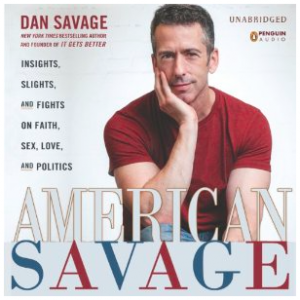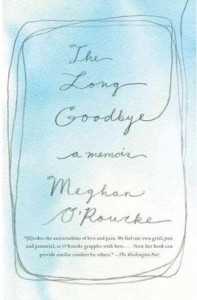by Stewart Moore, Colorado Review editorial assistant
I have several friends who say they love driving long distances. They relish the opportunity to burn down the highway, see the landscape change before their eyes, and jam out to five hours of music. I, however, hate driving. Not only because I can’t sit still for more than an hour without having to contort my body into a variety of positions to stay comfortable, but also because I get tired of music after one or two CDs.
Like me, when my brother was in high school in the early 2000s, he found that he couldn’t stay still long enough to get through a book. A future English major at Washington & Lee University, he had trouble concentrating long enough to make it through A Tale of Two Cities, among other titles. His solution was to go to the library and check out a stack of tapes and CDs to listen his way through the required reading.
As an English graduate student and TA at Colorado State, I read enough between classes and work to make the idea of “pleasure reading” seem like an oxymoron. Many of my friends and colleagues anxiously await a long weekend when they can sit down with a title they’ve had their eyes on for months, be it trashy romance or a compelling roman à thèse. On the other hand, I’ve never enjoyed “curling up” with a book. In my breaks from school and work, I much prefer to be physically moving to release as much energy as possible that has swelled up during the stagnant weeks, and my need to move used to typically result in a hiatus from reading.
 In 2013, while listening to Dan Savage’s Savage Love podcast, I was made aware of Amazon’s audiobook service, Audible. Dan Savage was preparing to release his newest book, American Savage, and offered podcast listeners a code to redeem a free book of their choice. I jumped at the opportunity and was soon listening to Cheryl Strayed’s Wild while doing everything from driving to house cleaning. I’ve since invested in a subscription to Audible and receive one audio book a month, which is typically enough for me.
In 2013, while listening to Dan Savage’s Savage Love podcast, I was made aware of Amazon’s audiobook service, Audible. Dan Savage was preparing to release his newest book, American Savage, and offered podcast listeners a code to redeem a free book of their choice. I jumped at the opportunity and was soon listening to Cheryl Strayed’s Wild while doing everything from driving to house cleaning. I’ve since invested in a subscription to Audible and receive one audio book a month, which is typically enough for me.
Audio books have some incredible benefits. Used to help children increase reading comprehension, provide an alternative for the visually impaired, or to just to help maintain focus while working through a brick-of-a-novel like David Copperfield, audio books are not only portable and conducive to multi-tasking, but they also make certain books more interesting and enjoyable.
 This year I listened to Dan Savage’s American Savage and Meghan O’Rourke’s The Long Goodbye. Both of these books are actually narrated by the author, and thus I was able to easily pick up on Savage’s sarcasm and cutting humor as well as stay sympathetic to O’Rourke’s exploration of cultural grief as she dealt with losing her own mother. In the audiobook version of Orson Scott Card’s Ender’s Game (which I had to listen to before seeing the movie), multiple narrators read for multiple characters and provide listeners with a sense of appropriate narrator bias when relating non-dialogue text. Card himself sneaks in minor role and, in the audiobook’s afterword, states that in his opinion an audiobook is the ideal format for Ender’s Game, even more so than the printed book.
This year I listened to Dan Savage’s American Savage and Meghan O’Rourke’s The Long Goodbye. Both of these books are actually narrated by the author, and thus I was able to easily pick up on Savage’s sarcasm and cutting humor as well as stay sympathetic to O’Rourke’s exploration of cultural grief as she dealt with losing her own mother. In the audiobook version of Orson Scott Card’s Ender’s Game (which I had to listen to before seeing the movie), multiple narrators read for multiple characters and provide listeners with a sense of appropriate narrator bias when relating non-dialogue text. Card himself sneaks in minor role and, in the audiobook’s afterword, states that in his opinion an audiobook is the ideal format for Ender’s Game, even more so than the printed book.
Sometimes I wonder if I can really say I’ve “read” the books I’ve listened to. While I admit that occasionally I may tune out an audiobook if I’m scrubbing a particularly stubborn casserole dish, in general I stay focused listening and gain a more advanced understanding of the work. So my personal answer is yes, though there is certainly room for debate.
Regardless of whether you consider it reading or listening, if you’re interested in shorter audio works, Colorado Review offers a monthly podcast of readings and discussions of select poems, stories, and essays published in our magazine. Kylan Rice spearheads the Colorado Review Podcast, installments of which appear in this blog and on our Facebook page. I encourage you to check it out.